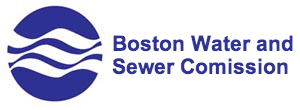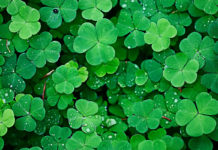As the region, nation and globe grapple with the COVID-19 pandemic, questions and concern have arisen about every aspect of daily life, including such basic matters as household water and sewer services.
When it comes to drinking water, an essential element of life, Boston residents have no need to worry or to waste resources stocking up on bottled water. Boston Water and Sewer Commission (BWSC), which receives its water from the Quabbin and Wachusett reservoirs and provided by the Massachusetts Water Resources Authority (MWRA), is pleased to inform Bostonians that the COVID-19 virus is not in their water and meets all health standards.
BWSC will also continue normal functions to send the city’s wastewater (sewerage) to MWRA’s Wastewater Treatment facility at Deer Island. However, the efficient operation of both Boston’s sewer system and the Deer Island plant could be jeopardized by an anticipated overload of so-called “flushable” wipes, which in fact should not be flushed down toilets, as this can clog both household pipes and public sewers. The increased usage of flushable wipes has already been reported by other municipal systems and has been attributed to a perception that toilet paper is in short supply.
In these times when we’re confronting a major health crisis, the addition of health hazards created by clogged pipes and blocked sewers are situations we don’t need and that are quite avoidable. Consumers are reminded that only toilet paper is suitable to be flushed, and that personal care products, including wipes, dental floss, and paper towels don’t dissolve quickly – if at all – in water.
Boston is home to New England’s oldest and largest water, sewer and stormwater systems, which are owned, maintained and operated by the Boston Water and Sewer Commission (BWSC). Established in 1977, BWSC provides potable water and sewer services to more than one million people per day. BWSC is also the leading organizer of We Are All Connected, a campaign to raise public awareness about the importance of protecting and preserving Boston’s waterways. For more information please visit: www.bwsc.org.












